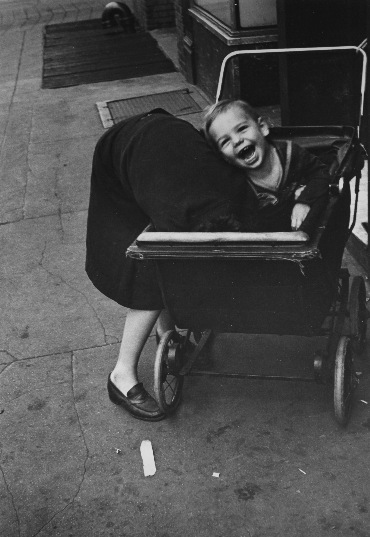
“Will what get better?”
“My parents.” His parents had recently been suggesting to him that his antidepressant medication cost should come out of his allowance and if he were more like his two younger brothers, star athletes and students, he would be costing them a lot less. He needed to get away from them any way he could. He played X-Box video games. Given his ADHD, this was the perfect escape, and would hold his attention for hours. But this bothered his parents quite a bit. They didn’t feel like they were being responsible parents if they let him play video games for hour after hour. So they decided that he was to play no more than 1 hour.
Most parenting authorities would agree with this restriction, I think. I, too, think that it’s reasonable for parents to restrict the amount of time a kid is playing video games. It’s reasonable to limit the time to 1 hour.
But I know something else: it’s completely arbitrary. Yes, there are studies that show that increased screen time is correlated with obesity, social dysfunction, and other problems. But at what duration do those problems suddenly occur? Nobody knows or has looked at that. Is 15 minutes safe? What about 120 minutes? Because I believe television is a drug, how much of a dose will cause some effect, and what dose will cause trouble? Franklin may not have been familiar with the research in this field, but he knew in his gut that the 1-hour limit was arbitrary, and that his parent picked it out of thin air. He also knew that he was unnaturally thin, didn’t snack, got plenty of exercise, and that whatever social problems he had weren’t caused by his screen time. His parents made another mistake. When they insisted that he reduce his video game time by hours, they didn’t offer him any alternative ways to spend those hours. He was doing well in his classes, and keeping up with his assignments.
When he spoke to me in private, he told of many little remarks made by his parents. They weren’t directed at him, they weren’t meant to hurt his feelings. They weren’t insults or denigrating. They were, however, part of the family lexicon. He recalled this statements in precise detail, and I don’t doubt him at all. Sometimes they came when a parent was talking on the phone to a friend or relative, sometimes it was a statement between the parents, and sometimes it was something said sotto voce to one of his younger siblings. Franklin heard them all, and he knew what they meant. ‘We can’t go because Franklin….’ ‘Why can’t Franklin be more like you? You never cause us any trouble.’
Families have a jargon all their own. Big companies have this, the military has this. Sometime restaurants do, too: Adam and Eve on a raft famously meant poached eggs on toast. And wreck ‘em was added if you wanted scrambled. When his brothers fought, sometimes one would teasingly call the other Franklin; a parent would smirk.
So he asked me one of the hardest questions I have been asked. He asked if it would get better. The easy way out would have been to say one truth, ‘I don’t know.’ I can’t predict the future, so I could have fallen back on that dependable standard. But he wasn’t really asking me for a prediction, with dates and times for the coming apocalypse, for example. Just as so many parents do, he was asking my professional opinion. Based on my training and experience, my intelligence and intuition, what did I really think? Would it get better?
This is an ethical problem, too. Do I make him feel better or do I tell him the whole truth as I know it, not just a statement that happens to be a true ‘I don’t know?’ When I ask my own doctors if something will get better and they say they don’t know, is this the whole truth?
I knew a more substantial truth than ‘I don’t know.’ I knew from my own family and from the families I knew since childhood, from the families of my parents’ friends in their retirement community. And I knew from the children I have seen grow from babies to high school students. Most parents have told me that their teenagers ‘were the same way’ when they were infants, maybe easily frustrated or easy to comfort, restless or relaxed.
In Franklin’s life, I had become about the only person he opened up to. It was a great privilege and he deserved more than facile answers. I told him once that I would always be honest with him. I said, “No, I don’t think it will get much better.” I don’t know if this was what he wanted to hear. If I had sounded upbeat and tried to assure him that it was going to get better, would he have believed me? How long would he give that prediction to unfold if it didn’t get better? I suspect he expected the easy answer, ‘I don’t know.’
Though this was my best professional assessment, rolled into a single No, it wasn’t the whole truth, either. Dealing with some of the most difficulty kids, I can say confidently that even when we can’t change the difficult child, we can change how we understand them and deal with them in ways that make those interactions much less frustrating. This increasingly educated and empathic approach often helps a lot in reducing the number and intensity of explosions. In Franklin’s case, I found myself with a type of role reversal. I told him what I often tell parents of particularly problematic kids. Pick your battles carefully. If you know that something will provoke an explosion, then whose fault is it when the inevitable happens?
Change your expectations of them, and that will cause you to change your expectations for yourself. Be the grown-up.
I reviewed with him the situations most likely to cause battles. I asked him the same questions I ask parents of difficult children. What was your last fight about? Did you win? If you did, was it worth it? Did the child learn a lesson and now won’t do that ever again? (The answer is always no, by the way.) Do you feel good about it? Does the child feel good about you because of it? I ask the same follow-up questions if they say they didn’t win the fight. If it wasn’t worth it, if nothing was learned or gained by it, would you like to do it again? If not, then don’t fight about it. It takes two to make an argument. Be the grown-up, be the first to walk away and say you’re sorry. You may lose a fight but gain a child. Maybe these parents have already lost Franklin. But I have to help him make the most of the goodness inside him. What do I call this advice? It's not parenting. Is it childing?
The Latin proverb at the top of the page means The wolf changes his coat, not his disposition. Readers need only look as far as their own aging parents. Are they very different from when you were a kid? Do they treat you or talk to you so much differently?
On another note, have you taken my survey yet? I know all the questions seem similar, but they're not. I'm trying to find out how to compose a committee at the hospital, or maybe designate a person, who you would have make decisions for your loved one--your parent, your child, maybe you--who cannot make decisions for themselves. Sure, you may have made all kinds of thoughtful arrangements, but what if they can't get in touch with you? What if they can't even get information about this loved one? Scary stuff, I know. But several times a year, the hospital's doctors find themselves in this predicament. Take the survey, and help.






